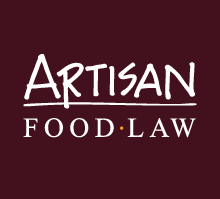Supervising organic production – more bureaucracy for producers?
The European Court of Auditors (ECA) recently published a special report: Audit of the Control System Governing the Production, Processing, Distribution and Imports of Organic Products. The report sets out the results of a recent audit on the effectiveness of the arrangements for supervising organic production.
The aim is to ensure consumers have confidence that when purchasing organic produce it has been produced in accordance with the strict criteria for organic production and labelling established under Regulation (EC) 834/2007 and subject to detailed implementation by later regulations. These provisions aim to guarantee that production conforms to organic principles and, for organic products originating within the EU, Member States must have a system of checks which are administered by control bodies (including Soil Association Certification and Organic Farmers and Growers) which inspect and certify individual producers, processors and importers where they operate in compliance with the regulations.
Organic products from outside the EU may be recognised as organic, if the production rules and control system applied to them are considered equivalent to the EU’s.
The ECA identified shortcomings which must be remedied to provide sufficient assurance that the system is operating effectively. In particular, Member States do not exercise sufficient supervision over control bodies and, as a result, some fail to satisfy a number of requirements and fail to take the opportunity to implement good practice. The Commission had not audited Member States’ systems of checks between 2001 and the time of the ECA audit. In order to remedy these weaknesses the ECA recommended:
- Member States should strengthen their supervisory role over national control bodies.
- The exchange of information within Member States, between Member States and the Commission and among the Member States should be improved.
- Checks should be strengthened to ensure that producers, processors and importers fulfil regulatory requirements regarding traceability.
- The Commission should strengthen its monitoring of Member States’ control systems by undertaking audit visits, gathering necessary data and information and putting it to good use.
- Regarding imports, the Commission should ensure that the countries in the list of those recognised as being equivalent for organic production are adequately supervised.
The Commission is in broad agreement with the ECA's recommendations. It is likely that, in future, the Food and Veterinary Office will undertake audits on control systems for organic production.
So what does this all add up to? In short, in the not too distant future, control bodies, and in turn organic producers, processors and importers, are likely to face a more rigorous inspection regime. It would be nice to think this will not be accompanied by more bureaucracy, but sadly rigour in such matters is all too often associated with increased paperwork.





